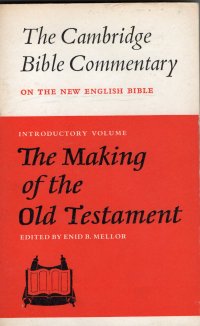 I picked this book up from the free book cart at church; it has the name of our former pastor’s father in it, which probably means that this book has made it through two trips through the seminary before coming to rest on my read shelves. I picked the book up and started reading it before a service where my beautiful wife was early to warm up either her horn or her pipes, and it (the book, not her horn) never landed on my to-read shelves. Although it did take me a while to go through it as it was lost in the car or a bag for a couple of weeks, and later I left it at a different campus of the church after arriving early so my wife could practice with the choir before a cantata, and I stuck it under my chair (the newer campus does not have pews) and forgot it after the cantata. So that’s a nice story. Have you noticed I’ve stopped stuttering?
I picked this book up from the free book cart at church; it has the name of our former pastor’s father in it, which probably means that this book has made it through two trips through the seminary before coming to rest on my read shelves. I picked the book up and started reading it before a service where my beautiful wife was early to warm up either her horn or her pipes, and it (the book, not her horn) never landed on my to-read shelves. Although it did take me a while to go through it as it was lost in the car or a bag for a couple of weeks, and later I left it at a different campus of the church after arriving early so my wife could practice with the choir before a cantata, and I stuck it under my chair (the newer campus does not have pews) and forgot it after the cantata. So that’s a nice story. Have you noticed I’ve stopped stuttering?
This book, one of a series, collects a number of essays/papers on the history of the Old Testament. It talks about how some of the stories match or mirror stories in other Mesopotamian cultures (such as the flood story appearing, for example, in the the epic of Gilgamesh). It talks about different kinds of Jewish literature, including poetry forms and wisdom literature. It talks about other books that do not appear in the official canon, but how they inform it a bit. They talk about the Septuagint (the translation of the Jewish canon into Greek) and how it influenced the Jewish canon itself (and the canon that would be part of the Christian bible).
The book is part history, part literary criticism (it talks a bit about how different types of literary criticism and interpretation have informed the canon) as well as part theological practice as it talks about both Jewish and Christian worship uses the various parts of the Old Testament.
So I ate it up, of course. I find this sort of material fascinating (see also On The History of the Bible: The Making of the New Testament Canon and On Lost Christianities: Christian Scriptures and the Battles over Authentication by Professor Bart D. Ehrman (2002)). Sometimes I almost wish I studied this rather than read it and forgot most of it soon after (although the same is probably true of things that I studied in college). Have I ever told you that I was almost a triple major in college, including theology with the English and Philosophy? No? I’d say it’s a long story, but it is not.


